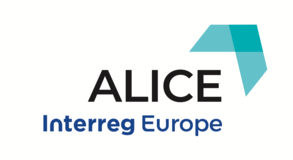On June 10th, ALICE invited the animation studios Dreamwall (Wallonia) and MadLab (Hauts-de-France) to a virtual meeting to share their experience of collaboration on the animation series "Abraca." The making of the series, financed by Wallimage and Pictanovo, is one of the three case studies undertaken by the ALICE Financial & Legal Working Group. The group focuses on the mobility of both talent and rights in order to facilitate access to talent for animation studios and their ability to mobilize international teams, which is a key component to competitiveness.
The meeting was very productive thanks to the quality of the selected participants. It brought together representatives of Dreamwall and MadLab, representatives of the Walloon and French co-producing companies, as well as Wallimage and Pictanovo animation experts.

The participants identified two main obstacles to talent mobility in their regions, including the location of the eligible expenditure (which forces production companies and studios to recruit local teams), and differences in labour laws which make managing multi-territory teams difficult. More specifically, the obligations related to the French status of “intermittent workers” were mentioned as affecting the dynamic of Franco-Belgian teams.
On the basis of this observation, the working group is considering how to reconcile the objectives of regional job creation with the operational reality of partner studios.
The group suggests to take a global approach to financing, which would support access to aid for producers and economic benefits for the regions. Under this system, Wallimage and Pictanovo would co-evaluate slates of projects from local producers on the basis of an overall distribution of expenditures between Wallonia and Hauts-de-France. The producers selected would benefit from a certain financial flexibility, within the framework of the authorized breakdown, fitting in with the spirit of partnerships and allowing for optimal teamwork.
The second avenue under consideration concerns the definition of a framework agreement making both Wallonia-based and Hauts-de-France-based labour expenses eligible vis-à-vis Pictanovo and Wallimage. Such an agreement would free partner studios from the tedious management of various employment contracts and help them optimize teamwork. It would lead to the provision of a “pool of employees” available for temporary exchanges, according to project workloads and without any physical transfer attached. That is, regardless of their assigned project, employees would work from their original studio and keep the benefits and rights of their regular contracts. To address the issue of mobility of rights, participants suggested transfers of skills should happen on the basis of mutual agreements between studios and not necessarily under co-production agreements. For MadLab and Dreamwall, this kind of agreement would make it possible to set up a stable Franco-Belgian 2D team.
To this purpose, Wallimage created the Walloon Gold Provider label two years ago. The label allows Walloon companies to call on foreign talent when needed (and up to a certain cap fixed by the fund) without affecting the amount of their eligible funding: staff expenditure of labelled companies remains 100% eligible for funding. With this label system, Wallimage supports the development and the competitiveness of local companies, and thereby long-term growth and job creation for the Region.
The third topic suggested in the session for review concerns the creation of a development fund enabling regional studios to capture European projects in early development, and therefore forge their editorial line and, indirectly, support long-term production planning. A comparable system, strictly dedicated to writing and open to non-regional projects, has existed at Pictanovo for almost two years. It consists of an annual envelope of 1 million euros provided by the region, along with development assistance aimed at supporting studios ahead of production.
From this meeting, the ALICE partners took away a series of options to be explored and tested on a small scale in the first instance, with the aim of proposing practical and replicable solutions involving other studios in Wallonia and Haut de France, and ultimately more regions in Europe. An International Legal Council is currently being recruited to see how these ideas can be translated into regulatory terms, and to produce a recommendation on ways of adapting such regulation on a European level. Wallimage, Pictanovo, studios and producers of “Abraca” will meet again in September to present concrete proposals to the Council.




